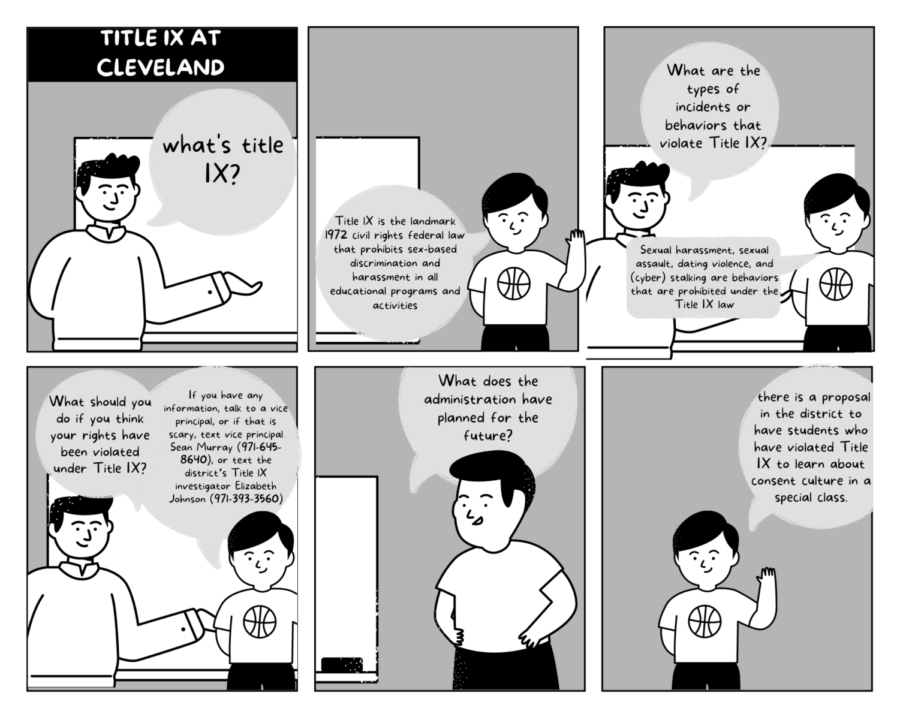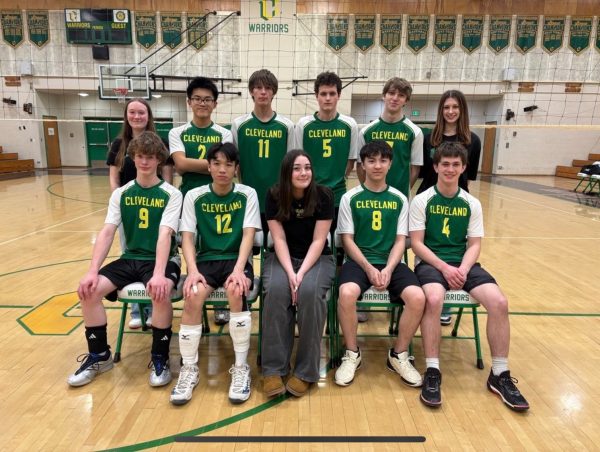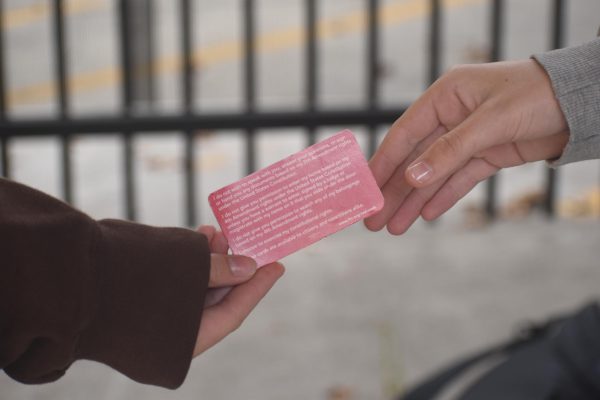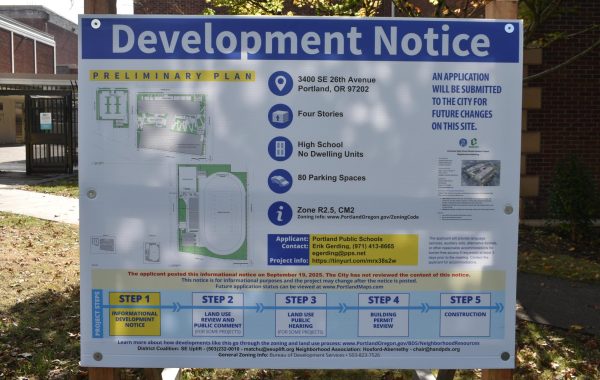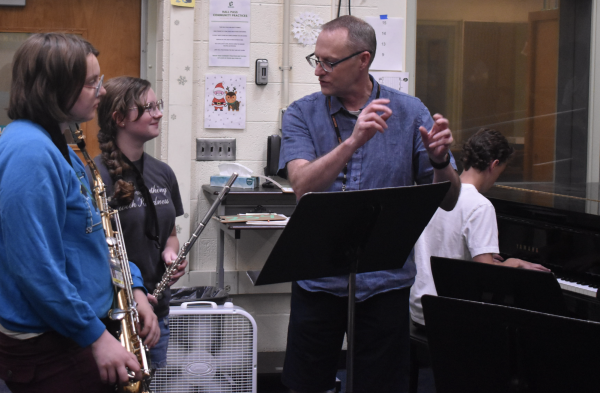What You Need To Know About Title IX Investigations
Clarion photo Leo Greenblatt
Portland Public Schools has put resources into enforcing Title IX compliance and helping students get access to the resources they may need. With the help of Cleveland’s new class, Building Consent Culture, flyers were posted on the hallways this fall to help make students aware of Title IX and what it all means for students who may be facing sex-based discrimination or hostility.
What is Title IX?
Title lX is the landmark 1972 civil rights federal law that prohibits sex-based discrimination and harassment in all educational programs and activities. The law works in conjunction with state and district policy to ensure all PPS students are safe at school and it also prohibits behaviors or incidents that create an intimidating, offensive or hostile educational climate for another PPS student.
What are the types of incidents or behaviors that violate Title IX?
Sexual harassment, sexual assault, dating violence, and (cyber) stalking are behaviors that are prohibited under the Title IX law. They amount to engaging in conduct that effectively denies students equal access to a school’s education program or activity. The law also prohibits discrimination based on pregnancy or parenting status, gender inequity in athletics or education programs such as inequitable access to facilities, and discrimination based on sexual orientation or gender identity.
What should you do if you think your rights have been violated under Title IX?
If you have any information, talk to a vice principal, or if that is scary, text vice principal Sean Murray (971-645-8640), or text the district’s Title lX investigator Elizabeth Johnson (971-393-3560). Any additional information, such as evidence, should be given to administrators. This could be a personal story, pictures, texts, or videos or other evidence. Another option is to contact a confidential advocate. Whereas administrators, counselors and teachers are mandatory reporters, confidential advocates are not. They can be a supportive resource and explain the process and be an emotional support and work with you to make a safety plan that suits your position. Their hours are 11:30 a.m. to 4:30 p.m. in room 337 on Tuesday and Thursday. Or, call confidential advocate Pamela Zigo (503-388-8211) or email [email protected].
What happens when you do talk to the administration and a Title IX investigator?
Talking to administration or a Title IX investigator could start an investigation. Keep in mind that without an investigation, there can be no repercussions for a perpetrator. One possible outcome might be that a no contact order is put in place. Parents of each of the students in question must sign off on this. The order makes it so the survivor and the accused perpetrator won’t have any of the same classes and can even go as far as making it so they won’t cross paths in the hallways.
Can you share your story publicly with a no contact order?
A no contact order controls where and how the situation can be talked about and shared. Victims can talk about their story in a private setting, but not publicly. “If somebody goes in to talk to their friends and the friends are like, ‘I’m gonna get this guy,’ they would be breaking the no contact order,” Murray said, even if that was not the person’s intent in sharing.
Sharing one’s story with the student body publicly can be “empowering,” Murray said, “but I don’t think if you’re sharing your story and not identifying, it’s a slippery slope because most people are gonna know who you’re talking about based on the context of your story. And always believe the victim, but there are other perspectives that have to be heard regardless whether it’s true or not.”
How do allegations made through social media play a role?
Many students see social media as a safe enough place to share their stories. This route, however, puts the administration in a strange position because they need students to come forward to them to start a formal investigation. There can’t be a Title lX investigation started based on allegations only on social media.
There are students not involved with a situation, but who know about it and because of that they have anxiety and fear in school. Could they possibly acquire a no contact order to help with how the fear may affect their mental health?
Unfortunately, there are a lot of negative repercussions of this proposition. “I think that would be really challenging because people could abuse this,” Murray said. He pointed out that students may ban together against another student, or it could be used on people who don’t actually need the order because they aren’t actively suffering through extreme fear.
What does the administration have planned for the future?
Murray said that there is a proposal in the district to have students who have violated Title IX to learn about consent culture in a special class. “They would be recommended for this class where they then have to go with a parent to learn about Title lX,” Murray said.



